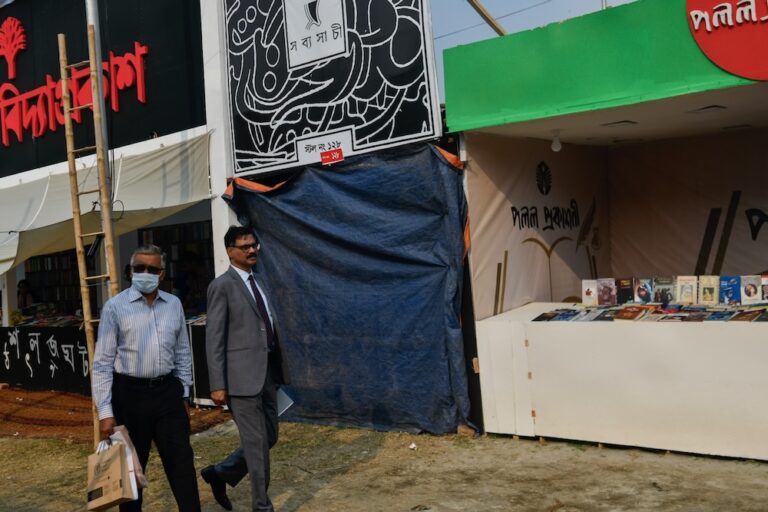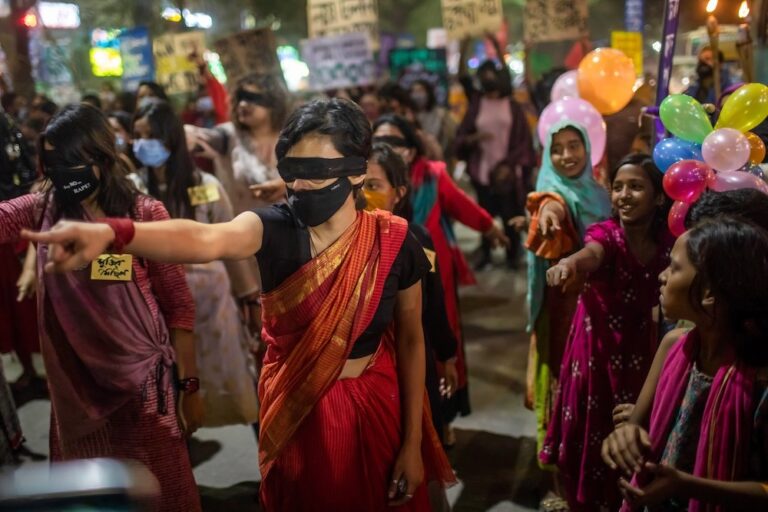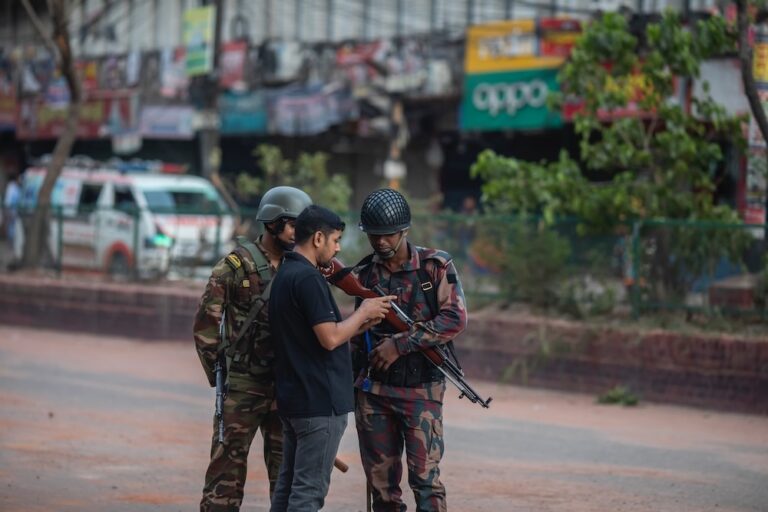(IPI/IFEX) – The following is a 20 January 2009 IPI press release: Vienna, 20 January 2009 ‘Justice Denied’ Journalist Atiqullah Khan Released from Prison Mohammad Atiqullah Khan Masud, editor of the daily Janakantha (The People’s Voice) and a prominent campaigner for press freedom in Bangladesh, was released today after spending more than 22 months in […]
(IPI/IFEX) – The following is a 20 January 2009 IPI press release:
Vienna, 20 January 2009
‘Justice Denied’ Journalist Atiqullah Khan Released from Prison
Mohammad Atiqullah Khan Masud, editor of the daily Janakantha (The People’s Voice) and a prominent campaigner for press freedom in Bangladesh, was released today after spending more than 22 months in prison.
The International Press Institute’s Justice Denied Campaign has called for the editor’s release since his arrest in 2007. He was sentenced to over 48 years in separate graft cases.
“IPI welcomes the release of Atiqullah Khan from prison,” said IPI Director David Dadge. “In a meeting in December 2008, we met with Sheikh Hassina and urged her to review Atiqullah Khan’s case if she became prime minister, and I am very glad that this now appears to be happening. I hope that it will finally lead to all the criminal cases against him being dropped and that he will be allowed to return to his profession unmolested by the authorities.”
Atiqullah Khan was arrested under Section 16 of the recently revoked Emergency Powers Rules of 2007. The terms of his release were not immediately clear.
Atiqullah Khan’s Bengali-language newspaper is known for its uncompromising stance on press freedom and has always reported on press freedom violations. Janakantha journalists have faced multiple attacks and intimidation over the years, and in the past, the authorities have pressured businesses to pull their advertising, damaging the paper’s economic viability.
Reporters at bdnews24.com in the capital Dhaka confirmed to IPI that the ailing Atiqullah Khan had been released at 6 p.m. from a hospital where he had been held. He was greeted by his wife, Shamima A. Khan, and dozens of other supporters.
Troops stormed Atiqullah Khan’s office on 7 March 2007 and, after arresting him, searched his office and his home. Two days later, police brought charges of “corruption,” “criminal activities” and “tarnishing the image of the country” against him. Atiqullah Khan requested but was initially denied bail.
Atiqullah Khan was one of several journalists and editors who, in January 2007, urged the newly-appointed interim government to take a clear stand in favour of press freedom and against censorship.
Atiqullah Khan has faced a litany of charges in separate cases. Sentences of seven years were imposed on Atiqullah Khan on five separate occasions between March and May 2008, all based on similar charges of fraud. In addition, last April, he was sentenced to 13 years in prison for allegedly amassing illegal wealth and hiding assets in his wealth statement submitted to the Anti-Corruption Commission.
In September, the editors of Bangladesh’s 14 national dailies issued a statement, widely reported on by the country’s media, calling for Atiqullah Khan’s release. In the meantime, dismal prison conditions have strongly affected his health, and he has been suffering from neurological problems, heart disease, intestinal disorder, kidney trouble, and eye problems.
Updates the Atiqullah Khan case:
http://ifex.org/en/content/view/full/97201


